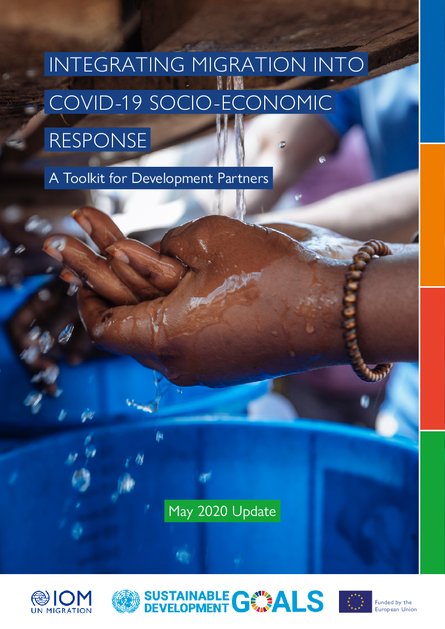
INTRODUCTION
COVID-19 has impacted and is impacted by human mobility. This, in turn, is affecting sustainable development. There is increasing documentation of this relationship, including:
• Migrants and refugees experiencing stigma, discrimination, and xenophobic attacks due to perceived links between migration and disease transmission.
• Migrants and refugees having difficulty accessing health services and income subsidies.
• The additional physical and mental vulnerabilities of people in camps and camp-like settings, identification, transit, and detention centres.
• International migrant workers (formal and informal) being stranded, losing their livelihoods with no access to social protection, with some forced to return to situations of risk.
• The impact of border closures on migrant workers’ ability to contribute to key sectors, such as tourism, hospitality and agricultural production linked to food security.
• The importance of migrant workers in response and recovery, especially providing front-line health and care services.
1) The GCM is the first inter-governmentally negotiated and non-binding agreement, covering all dimensions of international migration in a holistic and comprehensive manner. Although the GCM is not supported by all UN Member States, efforts to facilitate safe, orderly and regular migration is built upon target 10.7 of the Sustainable Development Goals.
• The detrimental financial impact of decreased remittances to global and national economies and vulnerable households, including in rural areas, as well as the important role of remittances in the macroeconomic recovery.
• Migrant or refugee children facing challenges and/or enhanced vulnerabilities due to the disruption of education and child protection services.
As donors around the world pledge billions in development aid to support the COVID-19 socio-economic response, development partners should ensure that migration is considered in the design, implementation, and monitoring of how these funds are used. This will help make sure that:
i. The rights of migrants and refugees, their families, and communities affected by migration are protected;
ii. Well-managed migration is a tool to accelerate response and recovery;
iii. The promise to “leave no one behind” is upheld. Together, the Sustainable Development Goals (SDGs), Global Compact for Safe, Orderly and Regular Migration (GCM), and the Global Compact on Refugees (GCR) provide a high-level roadmap for this purpose.
